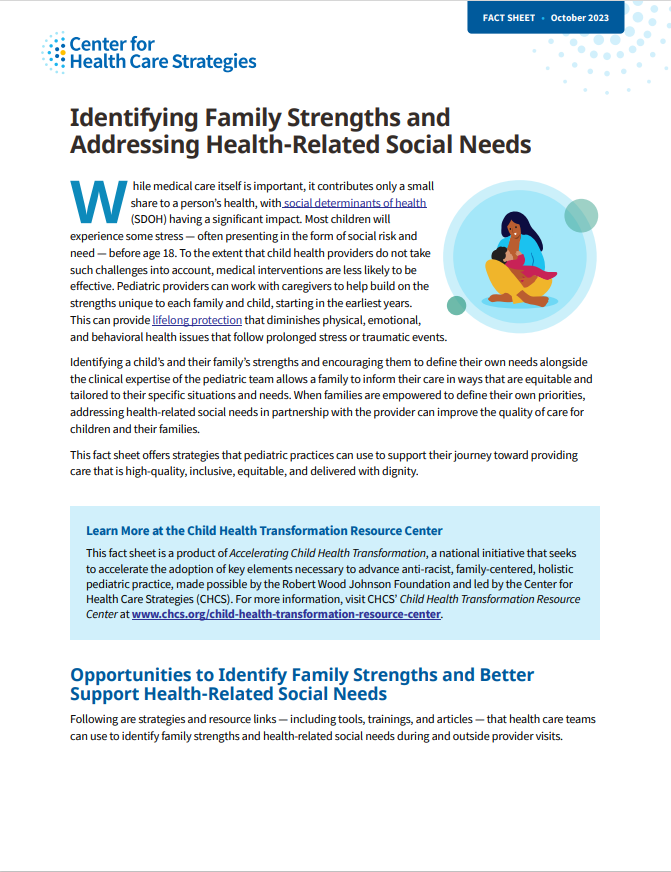While medical care itself is important, it contributes only a small share to a person’s health, with social determinants of health (SDOH) having a significant impact. Most children will experience some stress — often presenting in the form of social risk and need — before age 18. To the extent that child health providers do not take such challenges into account, medical interventions are less likely to be effective. Pediatric providers can work with caregivers to help build on the strengths unique to each family and child, starting in the earliest years. This can provide lifelong protection that diminishes physical, emotional, and behavioral health issues that follow prolonged stress or traumatic events.
Identifying a child’s and their family’s strengths and encouraging them to define their own needs alongside the clinical expertise of the pediatric team allows a family to inform their care in ways that are equitable and tailored to their specific situations and needs. When families are empowered to define their own priorities, addressing health-related social needs in partnership with the provider can improve the quality of care for children and their families.
This fact sheet offers strategies and resource links — including tools, trainings, and articles — that health care teams can use to identify family strengths and health-related social needs during and outside provider visits.




